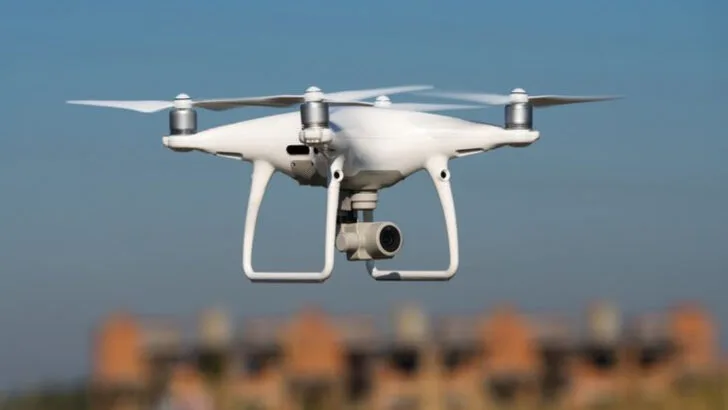Discover the surprising list of items prohibited in U.S. National Parks, aimed at preserving natural beauty and safety. While some bans may seem obvious, others might catch you off guard.
Explore twelve unexpected items you can’t bring into these protected areas, each chosen for specific reasons that contribute to the preservation of park beauty and visitor safety.
From drones to musical instruments, learn why these items are considered detrimental, and prepare for your next park adventure with knowledge on what to leave behind.
Drones
Drones, those buzzing aerial gadgets, are banned in national parks. While they offer stunning aerial footage, they disrupt wildlife and disturb the peace. Imagine a majestic eagle being startled mid-flight by a whirring drone. Such disturbances can have serious repercussions on natural habitats.
Additionally, these devices pose safety risks, with potential crashes leading to environmental harm. The ban ensures that parks remain a sanctuary for both wildlife and visitors, preserving the tranquil experience intended by nature enthusiasts.
So, next time you plan to capture park beauty, remember to leave your drone at home and enjoy the serenity from the ground.
Geocaching Items
Geocaching, the modern-day treasure hunt, is not allowed in national parks. While the adventure is exciting, placing geocaches can damage sensitive environments. Picture a hidden box disrupting a pristine moss-covered area.
Moreover, seekers might stray off-trail, trampling on delicate flora and disturbing wildlife. The activity, though fun, conflicts with the conservation goals of these protected lands. It’s essential to respect the natural habitat and adhere to park rules.
Engage in this thrilling activity outside of park boundaries, where it aligns with environmental preservation and enjoyment doesn’t come at a cost to nature.
Fireworks
Fireworks, synonymous with celebration, are strictly prohibited in national parks. While they light up the sky, they pose a significant fire hazard, especially during dry seasons. Imagine a single spark igniting a forest, endangering lives and ecosystems.
The noise also frightens wildlife, causing stress and disruption. Parks are places of solace and natural beauty, and loud explosions contradict this peaceful environment.
For a safe and harmonious park experience, it’s crucial to leave fireworks out of your celebration plans. Enjoy the natural light show provided by the stars and the moon instead.
Metal Detectors
Metal detectors, tools of treasure seekers, are prohibited in national parks. These devices can lead to the digging and disturbing of landscapes that are meant to be preserved. Picture enthusiasts tearing up trails in search of hidden relics.
Moreover, the quest for treasure can inadvertently damage archaeological sites and disturb historical artifacts meant to be protected for academic study and public education.
Preserving the integrity of park history and natural landscapes is paramount. Thus, while the thrill of discovery is enticing, leave your metal detector at home and enjoy the park’s beauty undisturbed.
Glass Containers
Glass containers, often used for convenience, are banned to protect park visitors and wildlife. Imagine a scenic trail littered with sharp shards, posing dangers to both feet and paws. Wildlife, curious by nature, might ingest broken pieces, leading to serious harm.
The risk of breakage and the difficulty in cleanup make glass unsuitable for these natural environments. Opt for reusable, non-breakable containers to ensure safety and sustainability.
By leaving glass behind, you’re contributing to a safer, cleaner park experience for everyone, including the animals that call these parks home.
Pets Off-Leash
Pets, particularly dogs, are beloved companions but must remain leashed in national parks. Unleashed pets can chase or disturb wildlife, causing stress and potential harm. Consider a deer being startled and fleeing into danger because of an unexpected encounter.
Additionally, not all visitors are comfortable around pets, and accidents can occur if animals are uncontrolled. Keeping pets leashed ensures a harmonious experience for everyone.
By adhering to leash rules, you help maintain the park’s natural balance and allow all visitors to enjoy the beauty without worry. It’s a small step that makes a big difference.
Musical Instruments
Musical instruments, though they evoke joy and creativity, are banned in certain areas of national parks. The sound of a guitar or drum can disrupt the natural ambiance and disturb wildlife seeking quietude.
Picture a serene lake, its tranquility shattered by a well-meaning musician’s melody. Parks are refuges of peace, and maintaining this atmosphere is essential for both flora and fauna.
For those wanting to strum or sing, consider designated areas or campgrounds where music is welcomed. Respecting these guidelines helps preserve the park’s calm beauty for all who visit.
Plant Gathering
Gathering plants, flowers, or natural objects might seem harmless, but it’s prohibited to protect ecosystems. Imagine a field of wildflowers, vibrant and untouched, diminished by eager hands plucking them away.
This practice can deplete resources essential for wildlife and disrupt the natural balance. Each plant plays a crucial role in its environment, and removing them can have cascading effects.
Admire the beauty of nature without altering it. By refraining from gathering, you support conservation efforts and allow others to experience the park’s flora in all its untouched splendor.
Alcoholic Beverages
Alcoholic beverages, often associated with relaxation, are banned in many national parks. Drinking can lead to risky behavior, accidents, and disturbances. Picture a serene picnic turning chaotic due to overindulgence.
Moreover, alcohol-related litter and its impact on wildlife highlight the need for strict regulations. Park policies aim to ensure a safe, family-friendly environment for all visitors.
Enjoy the natural highs that parks offer—crisp air, stunning views, and the joy of exploration. Leave the drinks behind, and embrace the refreshing, sober experience that nature provides.
Cigarettes
Smoking, while a personal choice, is banned in many national parks to protect the environment and visitors. Imagine the pristine air tainted by smoke, or worse, a discarded cigarette butt igniting a wildfire.
Smoking not only poses fire risks but also affects the health of fellow visitors and wildlife. The goal is to maintain the purity of the air and the safety of the park’s natural beauty.
By adhering to no-smoking rules, you contribute to a cleaner, safer park for everyone. It’s a small sacrifice for a significant benefit to the environment and health.
Feeding Wildlife
Feeding wildlife in national parks is a common mistake with serious consequences. While it may seem kind, it disrupts natural behaviors. Picture a squirrel, reliant on handouts, losing its ability to forage naturally.
This dependence can lead to malnutrition and disrupt ecological balances. Additionally, feeding can encourage animals to approach roads or campsites, increasing the risk of accidents.
Respect wildlife by observing from a distance and avoiding feeding. It’s crucial for their health and the preservation of their natural behaviors. Enjoy the beauty of wildlife and let them thrive independently.
Unmanned Aerial Vehicles (UAVs)
Unmanned Aerial Vehicles, or UAVs, extend beyond the typical consumer drone. These sophisticated devices, often used for research, are restricted in parks. Consider the intrusion of a UAV on a quiet, remote landscape, disturbing the stillness.
While useful in scientific exploration, without permits, they can interfere with wildlife and visitor privacy. The restriction ensures that the integrity and peace of the park environment are upheld.
Researchers must seek proper permissions, balancing innovation with conservation. Enjoy the natural wonders with feet firmly on the ground, respecting the serene skies above.

